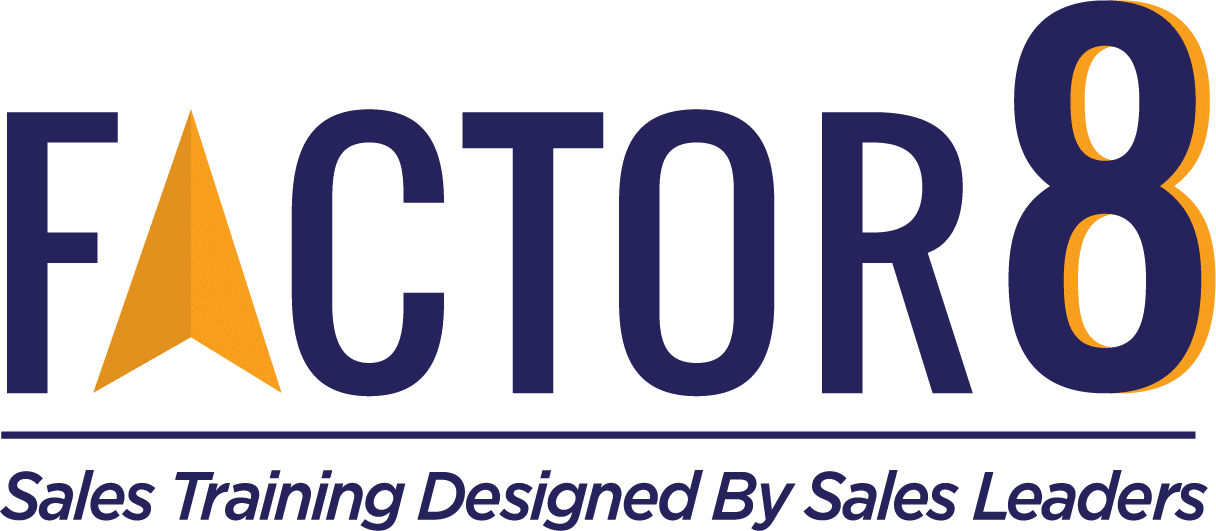How to Increase Sales Coaching Frequency
In all my years of sales leadership, there has never been a sales coaching emergency. You? Ever gotten a call after hours along the lines of:
“Panic! They don’t know how to…!! Help!?”
Exactly. And this is actually why, despite all our good intentions, there are precious few true coaching cultures in sales organizations. Even though we know the benefits – coaching skills that exceed expectations result in 94.8% of reps meeting quota and a top demand from the Millennials and Gen Zs you’re trying to hire (source: like every study published in the past five years).
Since there ARE sales emergencies, customer emergencies, product emergencies, and political emergencies every single day (and the non-emergent intentions), it’s no surprise that meetings get pushed to the bottom.
Over the years, I’ve had the pleasure of partnering with many organizations to establish or turn around their development cultures and we have lots of resources to help you after you finish this blog. Check out our top 20 actions download to help increase coaching frequency, our recent webinar on establishing a coaching culture, as well this fun quiz to determine whether or not your organization has a coaching culture.
If you’re a sales leader, the most important place you can start is by assessing your current culture of development and sales coaching importance. Here are a few questions to get you started:
- How often are my managers scheduled to call coach? How often do they really?
- What is coaching more important than? ($1M deal?) What is it not? (reporting request?)
- How eager are reps and managers for coaching sessions?
- Are we hiding or celebrating fails?
- Are reps getting built up or brought down?
The goal here is to determine if you have enough coaching, the right kind of coaching, and the kind of culture that supports it.
Starting with question 1, you may be surprised to learn that nearly 50% of reps disagree that they’re getting as much coaching as their managers state. Some of this is due to canceled or pushed coaching when fires happen (and let’s be honest, they happen daily in sales). I think the root of the problem here is how we define coaching. Most managers believe they’re coaching during a 1:1 meeting, a “how’s it going” chat, or a pipeline/deal conversation. Sorry…
“That’s NOT coaching!”
Our definition of best-in-class coaching is:
- Sales meeting is present (ride-along, recorded call, live video meeting)
- Manager asks questions about the reps’ skill
- Rep receives custom feedback on their execution
- Rep leaves feeling more confident than when they walked in
Sadly, this means that if you’re playing a call at a team meeting (great job by the way), this is sales training, not sales coaching. At most, you can provide custom feedback on a rep’s skills for about 3 people and 3 short call recordings in an hour. Yes, it also means that giving someone a laundry list of what to improve also doesn’t count as coaching. That’s just bullying. Inspect some sessions. You’ll be surprised – and you’ll be showing coaching’s importance with your presence.
Sales Executive Council also tells us that call coaching (aka skill coaching) is sales managers’ #1 worst skill. I’ve been hiring and training sales managers for 20 years and I wholeheartedly agree. And the hardest skill to shift is the laundry list of improvement items. It’s so easy for us to hear the challenges, and so hard for us to resist giving just one more idea for improvement. 90% of sessions during role plays come off negative at first, and it takes us at LEAST three training and practice sessions to start to even this out.
Like most leaders who came up through sales, I’m 100% guilty of the coaching bully myself. In fact, as we train sales managers how to coach at Factor 8, I modeled the curriculum after all my own personal atrocities. “Be like me…I do all the talking…Debbie Downer…” You get the picture. If you relate to this, you’ve probably also taken over a call or two you were meant to be silently observing.
That’s why I only coach recordings now. I just can’t be trusted during a live call. It’s also led to my #1 tip for antsy sales coaches:
“Coach the rep, not the deal.”
When we approach coaching with the intent of building confidence and skill vs. saving the deal, everything changes. Imagine the deal already lost. Resist the temptation to even ask about the outcome. Focus instead on engaging this seller, and helping them love their job, love their company, love their manager, and love sales.
It changes everything.
A note on culture. Spend a minute Googling the concept of a “growth mindset.” It’s our ultimate goal for sales coaching cultures. It’s a magical land where everyone cares more about improvement than winning. Did you just laugh out loud, my sales leader friend? Before you dismiss it, realize it’s the calling card of nearly every great athlete, and imagine if all your “A” players just kept getting better. How do you get here? A few ideas:
- Weed out your problem leaders. Yeah, the person you pictured is exactly who I’m talking about. They probably have veteran reps and accounts and are a fixture in your org – like a barnacle on the underside of the boat, they aren’t uplifters. Just note: culture is formed not by your intent! It’s defined by the worst behavior you’re willing to tolerate. His name was Brian at my first sales management job, and his attitude led the whole division to a culture of hazing and sink or swim. NOT the coaching culture the new workforce is craving!
- Share your failures and encourage your managers to do the same. A coaching culture is one where we’re not afraid to fail. We willingly share bad calls. We welcome feedback and input. Sorry, but humans aren’t built to be vulnerable and they will need a lot of role modeling here until your people feel safe to do so.
- Reward improvement. If you want a growth mindset culture, you can’t just reward the winners. Find ways every month to celebrate improvement. Could be a metrics jump, a KPI improvement, skill gains, CSAT ratings…you get it.
A final word of advice: over-correct. My first Sales Director job came on the heels of me launching a training department. There was no other sales leader as dedicated to developing people as I was. It still took me 6 months in the new gig to start talking about and prioritizing training. So I get how hard it is and how busy everyone is and how many emergencies keep coaching at the bottom of the to-do list. So, if it’s your goal, you’ll need to triple down to shift the pendulum. Dedicate six months to overdoing it. Talk about it in every team meeting and all-hands. Drop into coaching sessions and coach the coaches. Reward top coaches and rep improvements. Add it to contests. Ask your manager for skill trends in every meeting. Spend money on sales manager training. Be sure it is OVER represented in your calendar, your budget, and your voice for long enough that your team knows it isn’t a flavor of the month.
Got a tip? Drop me a line and let me know what’s worked for you! lb@factor8.com.

